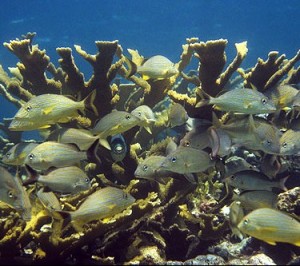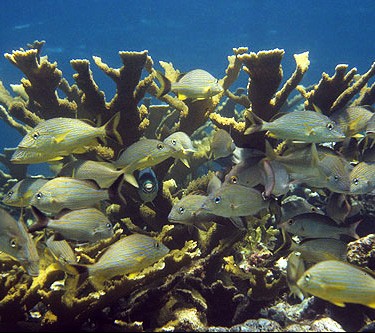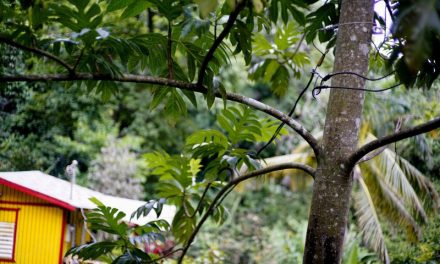San Juan, Puerto Rico – The decision came in response to an Endangered Species Act suit filed in January 2012 by Earthjustice on behalf of two conservation groups (CORALations and the Center for Biological Diversity), and Mary Adele Donnelly. Local counsel for Earthjustice on this case was Miguel Sarriera, who has represented a number of groups battling for environmental protection throughout Puerto Rico.
The court determined the Fisheries Service must do a better job monitoring the effects of commercial fishing on elkhorn and staghorn coral in the U.S. Virgin Islands and Puerto Rico. These coral species are protected by the Endangered Species Act and serve as essential habitat for fish and other marine species. Parrotfish protect these corals by grazing on algae that otherwise would smother the reef; removing the fish allows the algae to dominate reef systems and deny corals the space needed to grow.

Elkhorn (above) and staghorn coral, essential habitat for fish and other marine species, have declined by as much as 98–99 percent since the 1970s. Photo Courtesy of August Rode
Parrotfish eat algae that can otherwise smother coral habitat. U.S. Caribbean reefs already suffer from excessive algae cover, a situation exacerbated by scooping out the grazing fish necessary to hold back algal growth. This situation leads to what scientists call a “death spiral” in which the removal of algae-eaters like parrotfish leads to increased algae and decreased coral, which in turn results in fewer fish and other reef creatures.
Not so long ago, elkhorn and staghorn corals were the main reef-building coral species in the Caribbean. Yet these species have declined by as much as 98–99 percent since the 1970s thanks to stressors including overfishing, disease, and climate change. As the corals decline, so does quality habitat for fish and other creatures.




